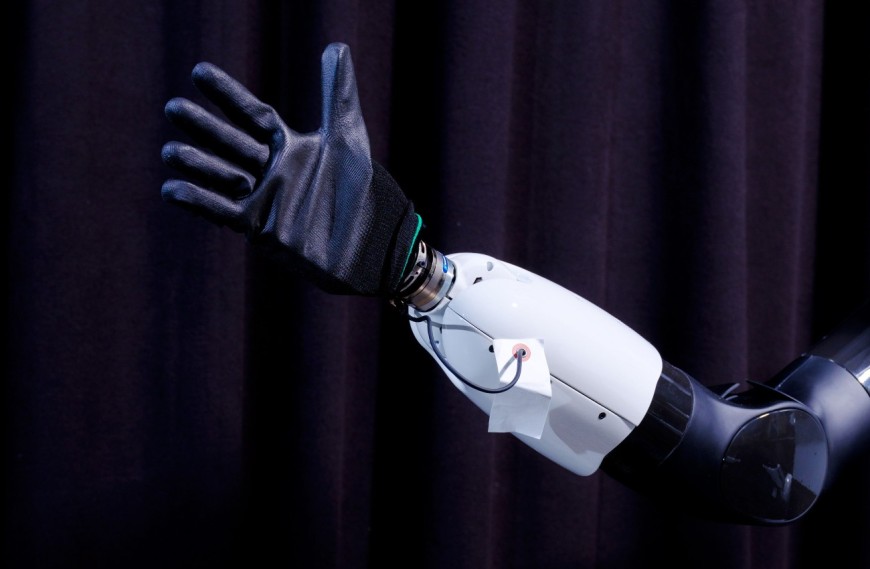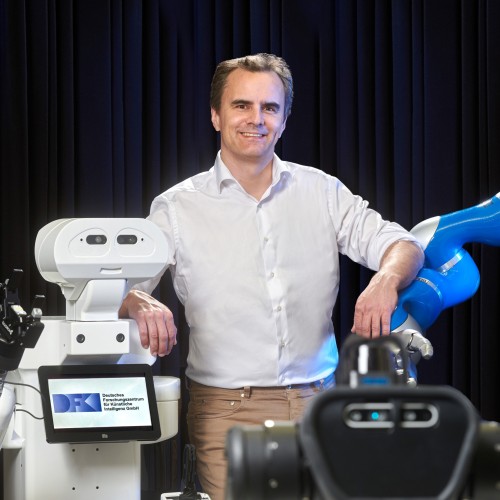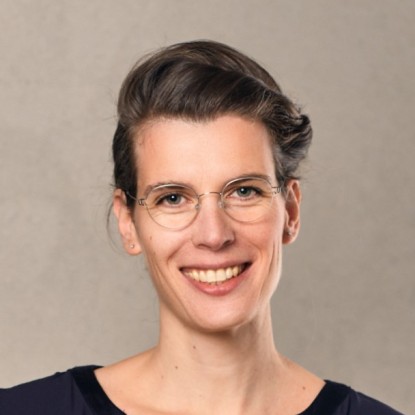New Master's program in in Autonomous Systems and Robotics
Start in winter semester 2023/24 / Online application possible until 31.8.
2023/06/02
Robots are supposed to make more tasks easier for humans in the future. But how can we get them to independently master new tasks and cooperate with us? With the new Master's program Autonomous Systems and Robotics with German as language of instruction, the Department of Computer Science combines modern computer science methods with knowledge from classical engineering education. Through close cooperation with other relevant departments at the TU, the program offers a particularly diverse range of courses. What exactly awaits the students and what job opportunities do the graduates have? Professor Jan Peters from the Department of Computer Science provides answers about the new degree program.

Why this M.Sc. program, Professor Peters?
Technical systems have evolved considerably: While the car was still a classic domain of mechanical engineering 10 years ago, a new Tesla is more like a computer on wheels. Sensors and motors are interconnected in ever larger networks and coordinated by computers. Rescue robots are used as first responders in disaster areas and anthropomorphic robots are on the verge of their breakthrough. To meet these great challenges, we need a new kind of computer scientist in the field of autonomous systems and robotics.
For who is this M.Sc. program well-suited? What can students expect?
This M.Sc. program is designed for students who want to use their computer science knowledge to change the real, physical world. Other computer science M.Sc. programs only consider the computer as an autonomous system that had its sensors and actuators amputated. The Autonomous Systems and Robotics M.Sc. program, on the other hand, gives students a holistic education. They learn to enable computers to perceive their world via sensors or to plan and execute changes in their environment.
Professor Jan Peters,
Dean of Studies
The degree program is designed for students who want to use their computer science knowledge to change the real, physical world.

Are there comparable M.Sc. program in Germany?
Autonomous systems and robotics can only be studied in Germany at the universities in Darmstadt, Stuttgart and Lübeck. But their M.Sc. programs are fundamentally different! TU Darmstadt’s M.Sc. program attempts to cover the full spectrum of autonomous systems and robotics and to provides an introduction to a variety of fundamental topics and practical applications. This great degree is only possible because a particularly large number of good researchers and teachers are active in this field at the TU Darmstadt. Stuttgart University’s M.Sc. program is more specialised in industrial applications – especially in production – and the Lübeck University’s M.Sc. program is primarily suited for medical robotics.
What job opportunities will graduates have?
Due to the computerisation of all technical systems and the fact that German engineering courses typically do not teach the sufficient programming and software engineering skills, the demand for technically oriented computer scientists cannot be met in the foreseeable future. Since all technical systems are becoming more and more autonomous and the current wave of new intelligent robots application, outstanding careers will obviously await our graduates.
Master's program in Autonomous Systems and Robotics (Language of Instruction: German)
Robots already make many tasks easier for humans in the future. But how can we get them to handle new tasks independently? How do we teach them to cooperate with humans in our complex, human-centred world? With the Master's program in Autonomous Systems and Robotics with German as language of instruction, the department combines modern computer science with classical engineering education. Through close cooperation with other engineering departments at TU Darmstadt, the degree programme offers a particularly diverse range of courses. Additional courses are primarily offered by the depts of electrical engineering and information technology as well as mechanical engineering.
Elective areas ensure that students acquire the specialist knowledge and technical abilities essential for applying this knowledge to the real world. At the same time, the electives offered, e.g. in the Studium Generale, give students a lot of freedom to set their own focal points. A great strength of the degree programmes are the integrated projects and practical labs. Here, students have the opportunity to participate in challenging research projects of high international saliency. Graduates face an innovative and promising job market with diverse perspectives in industry, business and research. They can help shape our future as system engineers or software developers in research institutions or in areas of research, development and application in companies.

